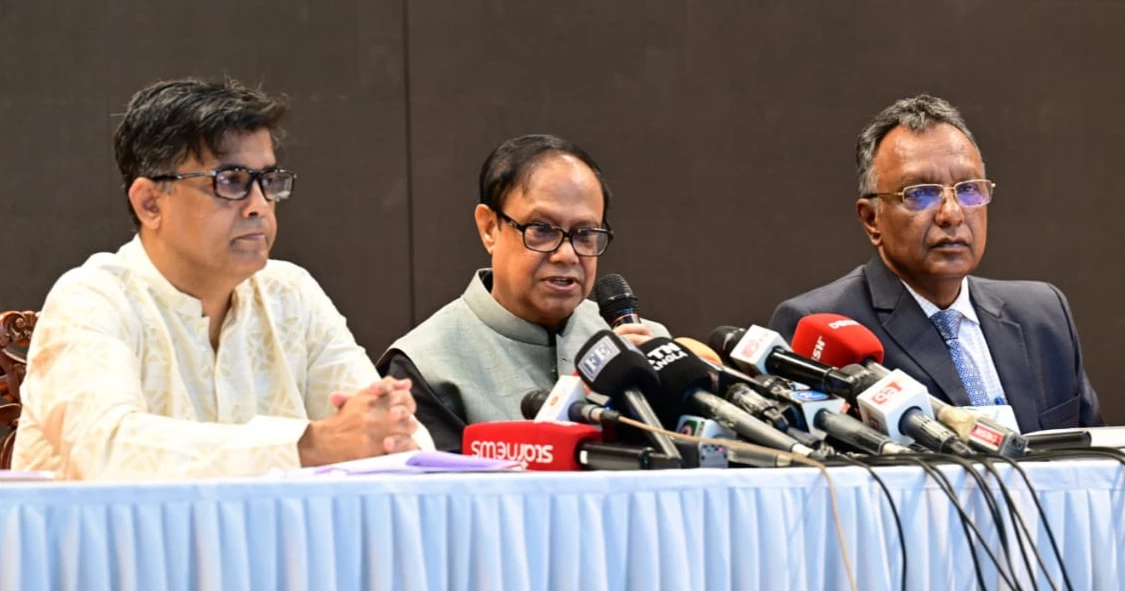The government is set to establish a dedicated fund to manage money and assets recovered from financial crimes, with proceeds earmarked for supporting the country’s underprivileged communities, Bangladesh Bank Governor Ahsan H Mansur announced on Monday.
Speaking at a press briefing at the Foreign Service Academy in Dhaka, following a high-level meeting at the State Guest House Jamuna, he said the initiative aims to ensure the transparent and sustainable use of recovered assets, turning illicit financial gains into a force for public good.
The meeting, chaired by Chief Adviser Muhammad Yunus, focused on money laundering, the repatriation of laundered funds, and progress on anti-corruption measures.
Also present were the Chief Adviser’s Press Secretary Shafiqul Alam and the Head of the Bangladesh Financial Intelligence Unit (BFIU) AFM Shahinul Islam.
“The fund will be formally established soon and will ensure continuity and transparency in managing seized assets under future administrations,” said Mansur, noting that it would operate within the existing legal framework, with amendments if necessary.
Chief Adviser Yunus has directed the authorities to create what is being called the “Looted Money Management Fund”, dedicated to public welfare and insulated from political interference.
Press Secretary Shafiqul Alam emphasised that the fund must serve the people above all.
Mansur expressed hope that the interim government would be able to launch the fund during its tenure, while urging the next elected government to maintain and build upon it.
This marks a significant policy shift from traditional enforcement and asset recovery efforts towards social reinvestment.
Experts suggest it could become a model for institutionalising transparency and public accountability, similar to international efforts seen in countries such as Nigeria, where recovered funds have been channelled into development initiatives under independent monitoring.
The initiative also comes amid an intensified crackdown on money laundering. In recent years, billions have been illicitly transferred abroad through trade misinvoicing, shell companies, and real estate investments.
The BFIU and other agencies have launched several investigations, with some success in asset seizures and efforts to repatriate funds.
The Supreme Court has also encouraged the government to expedite legal processes for the recovery of laundered money.
In March 2025, the interim government introduced stricter compliance regulations for financial institutions and updated rules governing cross-border transactions.
It has also engaged foreign jurisdictions through bilateral and multilateral treaties to help trace and recover overseas assets.
If effectively implemented, the fund could help restore public trust in Bangladesh’s financial and legal systems, which have long been criticised for allowing politically connected individuals to avoid accountability.
By linking recovered wealth to tangible social outcomes, the government signals that justice will also benefit the wider population.
Further details on the fund’s governance, operations, and funding priorities are expected to be announced in the coming weeks.


